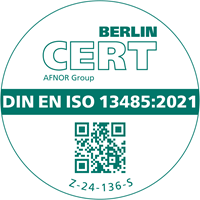Can you give us a brief overview of e-learning in the Medical Faculty of the University of Zurich and your function as co-ordinator?
The Virtual Training Platform for Medicine (VTM) integrates numerous learning resources from the whole study medical study programme on-line in one Web portal. As the Faculty’s E-learning Co-ordinator I am the point of contact between the various e-learning stakeholders – students, lecturers, the University’s didactic infrastructure, together with external contacts such as companies and foreign universities.
Could you give us a brief description of the re-structuring of the study of medicine and the demands this places on e-learning?
The reform of the study programmes in the Medical Faculty involves the advancement of practical training, the reduction in the number of contact hours across all years, the creation of a practical training centre (Skills Lab) and the integration of ICT modules. We are creating an integrated study environment with state-of-the-art work stations, which is very well suited to autonomous learning with multi-media support.
What is the status of audiometry in the study of medicine?
Audiometry is an element in Part 1 of the study programme, and the students take a practical audiometry course, which is assessed on the basis of a simple audiogram.
What is your assessment of the Otis training package, and what opportunities do you see for deploying it in the area of e-learning?
I am very impressed by the technical perfection of Otis, and its authentic case examples are in line with the trend towards problem-based teaching in the study of medicine. The package is ideally suited to helping students learn the skills required of an ear specialist, either independently or in small groups.
The only criticism I would have is that the program is perhaps too powerful for medical students as a target group – or rather, that it lets them learn more than is actually required of them. However, as long as we make it clear which cases form part of the syllabus of the Swiss Medical examination, there is no problem, and students with an interest in audiology can of course carry on training at any time.
Edition Clinic was developed especially for training institutions and has an examination module. Can you imagine using Otis – the virtual patient when conducting examinations?
The re-structuring of the study programmes also involves a re-structuring of the examinations. The biggest change is that there are more frequent modular tests at shorter time intervals. A problem-oriented didactic approach such as Otis is ideally suited to this, and it encourages the students not just to work towards the exams at the end of the semester. In future, I can see the great attraction of using simulation programs for examinations. The exam environment is very realistic, and less marking is required.
We congratulate the innoForce team on creating a wonderful and relevant program, and hope that with it we will be able to improve the training of ear specialists and make it more patient-oriented.
Thank you very much.




